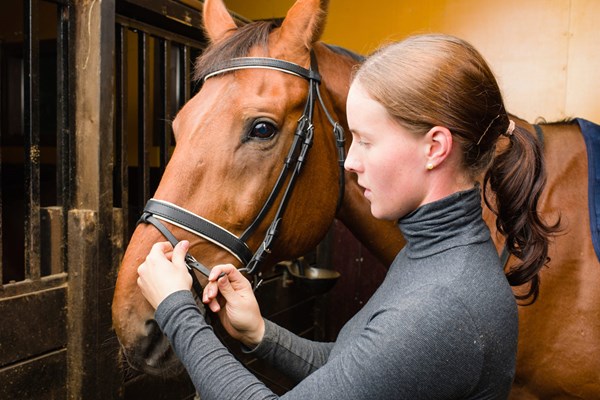 Credit: Thinkstock Keeping loyal, hard-working grooms at your facility should be a priority.
Credit: Thinkstock Keeping loyal, hard-working grooms at your facility should be a priority.Editor’s Note: Today’s grooms are different from those in decades past. In those days on Thoroughbred, Standardbred or show horse farms, grooms often spent their entire careers at one facility, with “good” grooms being “hired away” from competing farms. This isn’t as true today, with a more transient population of grooms, who often only work in that position in their younger days before seeking farm management positions, or positions outside the breeding/show horse industry.
Grooms are the life’s blood of most commercial horse operations. Generally grooms work six days a week with long hours (anywhere between 40-60). Those hours can include evenings, weekends and holidays. Grooms are the conduit between the horses and management. They are the first to notice an injury, change in behavior or an accident waiting to happen, which makes them all the more invaluable. But exactly what they are responsible for on a daily basis is all over the map.
From feed prep, turn-out and mucking stalls, to tacking up/un-tacking, bathing, leg wrapping, and show travel, with all it entails. Working outdoors in extreme temperatures and weather conditions are also part of the drill. And that’s just a partial list.
“Whether a groom is expected to care for an assigned number of horses or be available for a variety of tasks throughout the day, wages are typically low as well; the average hourly rate is roughly $9 to $15,” according to Mary Thomas, president of Equistaff.com.
She went on to say that having additional or specialized skills can help boost the bottom line paid to a groom. Those skills might include being able to ride or having foal, yearling or stallion handling experience. In some cases, grooms will negotiate for housing, health insurance or an extra stall if the groom comes with a horse. And depending on the facility, many grooms earn extra cash from client tips and bonuses, which is practically standard at many show barns.
Grooming skills are often transferable, and with increased experience, it is not uncommon for someone to trade-up to a managerial position, for instance, or transition to another area of the industry where there might be more growth potential.
The take-home message from Thomas is this: “If you have dedicated, loyal workers, they are worth holding on to, so it may be to your advantage to encourage them to learn new skills or assist them in realizing their goals.”


